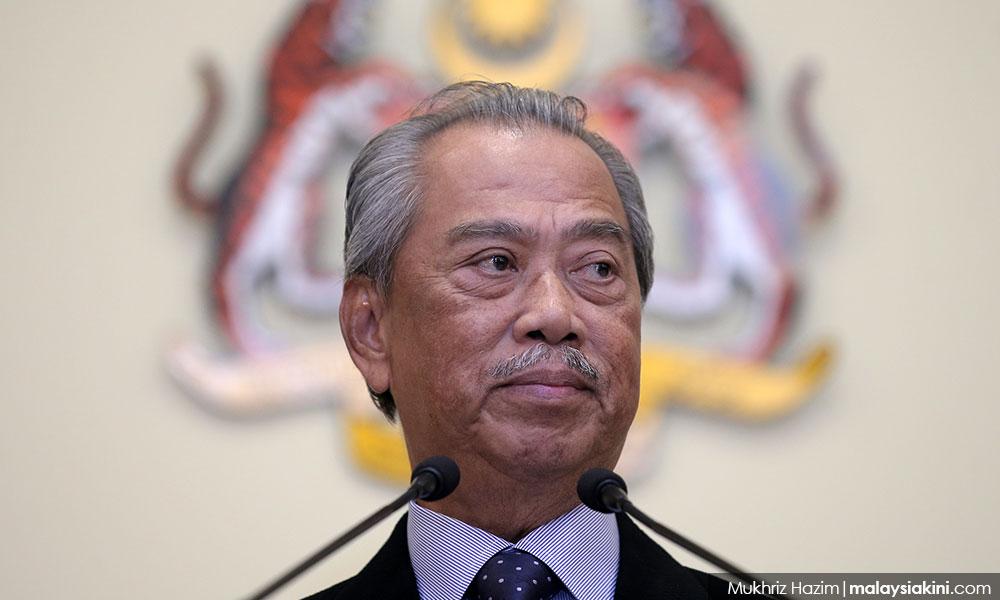Many world leaders have said democracy is the worst form of government. Winston Churchill however said it is the best we have compared to all other forms that mankind has tried.
The general feeling is that trusting in the people is still our best choice to organise human affairs. Therefore, the fact that Malaysia has a government based on democratic institutions is a good thing. Or is it?
In a utopian universe, there should be no difference between democracy and autocracy. The deciding factor is the character of the leader we get. Authoritarian leaders could be what the people need solely because they are consistently just and fair to all citizens. But Malaysia is no Utopia, and Utopia does not exist.
If leaders have a sense of shame, willing to admit mistakes and correct them, and are open to alternative approaches to governance, how that leader was put there in the first place should be irrelevant right? Other conditions are that the leader should be respected for his or her intelligence, integrity, moral standing, and ethics, especially in a multi-ethnic and religiously plural society like ours.
On intelligence, our leadership must be equipped to learn, understand, and deal with new and trying situations. To do this, they must be proactive and apply reason. Lately, most of our leaders avoid trying situations by being passive, retroactive, deflecting blame, or dishing out irrational explanations to justify a bad situation.
For example, a minister who remains silent on how the issue of rape is approached in our schools is not only unintelligent but completely oblivious, unethical, and irresponsible. Such leaders should be dismissed immediately.
Another characteristic of an intelligent leader is the ability to manipulate one’s environment and to think abstractly. The goal of such thinking is to solve problems. Herein lies the notion of ethical problem-solving or practical ethics. Leaders need to be both intelligent and of immense integrity to solve problems in our society. This is why the word “manipulation” has a positive connotation.
If our current leadership is sincere about eradicating corruption, they would school themselves. They would know that corruption and cronyism were the fundamental causes of how civilisations crumbled in human history. The late Lee Kuan Yew studied corruption. Look at where Singapore is today. It seems our leaders have a lot more schooling to do, but time is running out.
Most of our problems relate to endemic corruption, ethno-arrogance, and religious extremism. All three have severely impacted every stratum of our society. Malaysia is not homogenous. The ethical choices leaders make may cost them their political careers. However, in the long run, such choices will be admired, even tabled in the history books for future generations globally. Leaders have a choice to be remembered as either a Mandela or a Mugabe.
Most leaders have two immediate choices. They can make politically expedient ones, for the sake of personal glorification, power, and financial gain. Closing an eye to a corrupt police force or appointing friends to key administrative positions regardless of merit are two examples. Appointing incompetent foes as special envoys to a foreign country, to keep a fragile coalition intact is another choice.
Alternatively, leaders of our government could consider the fate of every citizen in Malaysia, keeping in mind that Sabah and Sarawak are equally important entities that make up our nation. This is to guarantee a vibrant country, through a system of just governance across the board, and across the South China Sea.
When Perikatan Nasional (PN) took over the federal government in 2020, politics was reset along a Malay nationalist, right-wing trajectory. Since then, numerous popular polls were conducted, the latest being the Merdeka Centre survey. Most conclude that Prime Minister Muhyiddin Yassin is still the people’s choice.

It is too simplistic to say that this is because PN is an all-Malay government in a Malay-majority society. Most probably it is because Malaysians see no other choice. Having said that, do polls and elections in the Malaysian context determine the actual aspirations of the people? Or do they merely rearrange political parties in Parliament?
We read and hear a lot about the people being “gripped with anxiety over corruption”. It was recently revealed by the former inspector-general of police (IGP) Abdul Hamid Bador about rampant transgressions within the police force at all levels. However, I beg to differ that the public is “gripped with anxiety” over corruption.
We are grateful to Hamid for exposing corruption in the police. Civil society is in praise of his heroism and so am I. However, two questions linger. First, why was this revealed only towards the end of his service? Second, why were the cases of enforced disappearances (Raymond Koh, Amri Che Mat) allowed to fester during his term? These are questions the families of the victims will agonise over for years to come unless the newly appointed IGP is an ethical man.
Why is there meagre concern over the continuing presence of convicted VIP criminals in mainstream local media? Politicians and their families who have been charged with and convicted of serious corruption (1MDB) and money laundering should be ignored pending all judicial processes, including appeals.
The concern here is about societal attitudes towards VIPs versus standing up for collective justice. The bottom line is a criminal should not be given the time of day. In any decent society, you reap what you sow. One can be innocent until proven guilty, but what if one is already proven guilty?
Legal processes aside, most, if not all credible democracies have a civil society, including the media, that adheres to practical ethics and integrity. It seems to be different in Malaysia. It is true that people are fed up with politicking. We are more concerned with jobs, wages, health, education, and businesses. But this existential exhaustion must not exist at the expense of justice and moral principles.
There should be a public outcry to mute the voices of criminals even if they are from the super-elite strata of society. When civil society fails to do so, it sends a hidden message that corruption is ultimately acceptable in Malaysia.

All of us should be sincere in identifying our fundamental principles in life. Paying lip service to philosophical ideals and screaming against state corruption and other crimes is just as damaging. If we are against corruption, go all out and leave no stone unturned. Since we are a democracy, the people should know how to vote intelligently. Equip yourselves with all the facts, not fake news or conspiracy theories.
If we are fed up with our current leadership choices, nurture, and mentor a fresh cohort. Warn them that they have only one chance. The Undi18 youth organisation is a good place to start. If they transgress, they will be kicked out after only one term.
The Malaysian public no longer has the luxury of dishing out chances. Democracy is hard work, not just for those in government but for voters and civil society as well. Time is running out.
SHARIFAH MUNIRAH ALATAS is an academic with zero tolerance for corrupt, arrogant, and frivolous leadership.
The views expressed here are those of the author/contributor and do not necessarily represent the views of MMKtT.



No comments:
Post a Comment
Note: Only a member of this blog may post a comment.